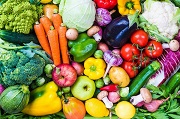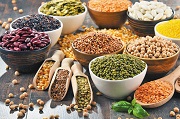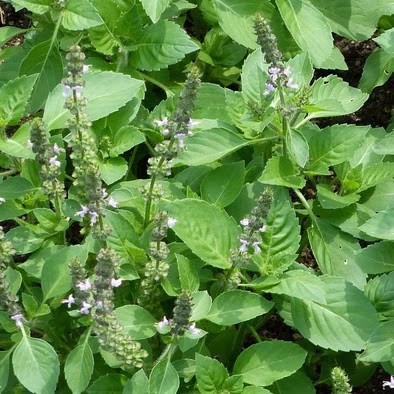High Quality Egyptian Basil For Export (Common And Organic)
| Botanical Name | ( Ocimum basilicum ) |
| Product Forms: | Crushed – whole – Powder – Seeds |
| Season Crop: | From May to September |
| Container Capacity: | Crushed // 5.5 MT per 20 FCL & 12 MT per 40 FCL (HC) |
| Available Form: | · whole flowers
· crushed flowers · sifting ( T.B.C ) |
| Season: | Available all the Year |
| Packing: | · Paper bags
· PP Bags with Liner plastic bags |
Annual production capacity : 450 Ton
Storage conditions: Store in a cool dry place at temperature above 20 ° C and relative humidity 75%.
Benefits of Basil
- Basil leaves contain many notable plants derived chemical compounds that are known to have disease preventing and health promoting properties.• Basil herb contains many polyphenolic flavonoids like orientin and vicenin. These compounds were tested in-vitro laboratory for their possible anti-oxidant protection against radiation-induced lipid per-oxidation in mouse liver.• Basil leaves contain much health benefiting essential oils such as eugenol, citronellol, linalool, citral, limonene and terpineol. These compounds are known to have anti-inflammatory and anti-bacterial properties.
• The herbs’ parts are very low in calories and contain no cholesterol, but are very rich source of many essential nutrients, minerals, and vitamins that are required for optimum health.
• Basil herb contains exceptionally high levels of beta-carotene, vitamin A, cryptoxanthin, lutein andzea-xanthin. These compounds help act as protective scavengers against oxygen-derived free radicals and reactive oxygen species (ROS) that play a role in aging and various disease processes.
• Zea-xanthin, a yellow flavonoid carotenoid compound, is selectively absorbed into the retinal macula lutea where it found to filter harmful UV rays from reaching the retina. Studies suggest that common herbs, fruits, and vegetables that are rich in zea-xanthin anti-oxidant help to protect from age-related macular disease (AMRD), especially in the elderly.
• 100 g of fresh herb leaves contain astoundingly 5275 mg or 175% of daily required doses of vitamin A.Vitamin A is known to have antioxidant properties and is essential for vision. It is also required for maintaining healthy mucus membranes and skin. Consumption of natural foods rich in vitamin-A has been found to help the body protect from lung and oral cavity cancers.
• Vitamin K in basil is essential for many coagulant factors in the blood and plays a vital role in the bone strengthening function by helping mineralization process in the bones.
• Basil herb contains a good amount of minerals like potassium, manganese, copper, and magnesium. Potassium is an important component of cell and body fluids, which helps control heart rate and blood pressure. Manganese is used by the body as a co-factor for the antioxidant enzyme, superoxide dismutase.
• Basil leaves are an excellent source of iron, contains 3.17 mg/100 g of fresh leaves (about 26% of RDA). Iron, being a component of hemoglobin inside the red blood cells, determines the oxygen-carrying capacity of the blood.
Specification
| Physical CHARACTERISTIC | |
| Color | Brownish green |
| Aroma | Grassy and herbaceous |
| Flavor | Characteristic flavor |
| Aspect | Dried leaves of Basil |
| Particle Size | 2-4 mm |
| MICROBIOLOGICAL Analysis | |
| Analysis | |
| Salmonella | Not detected in 25g |
| Escherichia Coli | Absent |
| YEAST/MOULD (CFU into 1g no more than) | 0,10 x 103 |
| CHEMICAL Analysis | |
| Moisture % | 6.00 |
| Extraneous Matter % | Absent |
| Living & Dead Insects % | Absent |
| Mineral Dirtiness Contents % | Absent |
| Organic Dirtiness Contents % | Absent |
| Allergens material | It Doesn’t contain |
| Metal particles % | Absent |
| Pesticides Residues | Meet EU Regulations |
| Heavy metals (Sr, Sс) | Absent |
Product Name
| German | Basilienkraut |
| French | Basilic |
| Portuguese | manjericão |
| Russian | Бэзил |
| Ukrainian | Безіл |
| Polish | bazylia |







